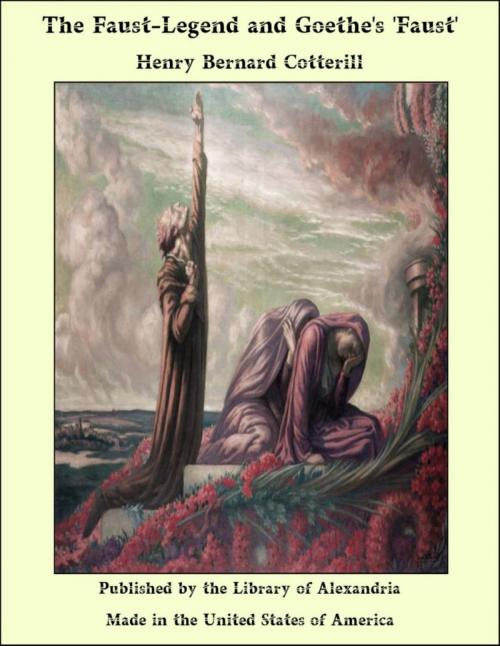The Faust-Legend and Goethe's 'Faust'
Nonfiction, Religion & Spirituality, New Age, History, Fiction & Literature| Author: | Henry Bernard Cotterill | ISBN: | 9781465513960 |
| Publisher: | Library of Alexandria | Publication: | March 8, 2015 |
| Imprint: | Language: | English |
| Author: | Henry Bernard Cotterill |
| ISBN: | 9781465513960 |
| Publisher: | Library of Alexandria |
| Publication: | March 8, 2015 |
| Imprint: | |
| Language: | English |
All of us have probably experienced the fact that it is possible to have been familiar for a long time with some great work of imagination—some poem or picture—to have learnt to love it almost as if it were a living person, to imagine that we understand it and appreciate it fully, even to fancy that it has a special message, a deeper meaning, for us than for almost any one else, and then to come across somebody—some commentator perhaps—who informs us that our uncritical appreciation is quite worthless, mere shallow sentiment, and that until we can accurately analyze and formulate the Idea which the artist endeavoured to incorporate in his work, and classify the diverse manifestations of this Idea as subjective, objective, symbolical, allegorical, dramatical-psychological or psychological-dramatical, we are not entitled to hold, far less to express, any opinion on the subject. When I realised that I had undertaken to lecture on Faust, I thought it my duty to study Goethe's German commentators—some of them at least; for to study all would consume a lifetime. A few of the works of these commentators I already possessed—some, I am sorry to say, with their pages yet uncut. Others I procured, following the advice of German friends well versed in the matter. I set to work on what was presumably the best of these commentaries. As I laboured onwards, page after page, I found myself from time to time turning back to the title of the book. Sure enough, it was Ueber Goethe's Faust. I laboured on—the suspicion deepening at every turn of the page that perhaps the binder might have bound up the wrong text under the title Ueber Goethe's Faust. At the fifty-third page I came to a dead stop. Except quite incidentally neither Goethe nor Faust had as yet been mentioned. These fifty-three pages had been entirely devoted to what seemed to my rather unmetaphysical mind a not very luminous or edifying dissertation on the difference between Ansicht and Einsicht—between mere Opinion and true critical Insight; and, as far as I could discover, the only conclusion as yet arrived at was that the writer possessed an exclusive monopoly in the last-mentioned article.
All of us have probably experienced the fact that it is possible to have been familiar for a long time with some great work of imagination—some poem or picture—to have learnt to love it almost as if it were a living person, to imagine that we understand it and appreciate it fully, even to fancy that it has a special message, a deeper meaning, for us than for almost any one else, and then to come across somebody—some commentator perhaps—who informs us that our uncritical appreciation is quite worthless, mere shallow sentiment, and that until we can accurately analyze and formulate the Idea which the artist endeavoured to incorporate in his work, and classify the diverse manifestations of this Idea as subjective, objective, symbolical, allegorical, dramatical-psychological or psychological-dramatical, we are not entitled to hold, far less to express, any opinion on the subject. When I realised that I had undertaken to lecture on Faust, I thought it my duty to study Goethe's German commentators—some of them at least; for to study all would consume a lifetime. A few of the works of these commentators I already possessed—some, I am sorry to say, with their pages yet uncut. Others I procured, following the advice of German friends well versed in the matter. I set to work on what was presumably the best of these commentaries. As I laboured onwards, page after page, I found myself from time to time turning back to the title of the book. Sure enough, it was Ueber Goethe's Faust. I laboured on—the suspicion deepening at every turn of the page that perhaps the binder might have bound up the wrong text under the title Ueber Goethe's Faust. At the fifty-third page I came to a dead stop. Except quite incidentally neither Goethe nor Faust had as yet been mentioned. These fifty-three pages had been entirely devoted to what seemed to my rather unmetaphysical mind a not very luminous or edifying dissertation on the difference between Ansicht and Einsicht—between mere Opinion and true critical Insight; and, as far as I could discover, the only conclusion as yet arrived at was that the writer possessed an exclusive monopoly in the last-mentioned article.















